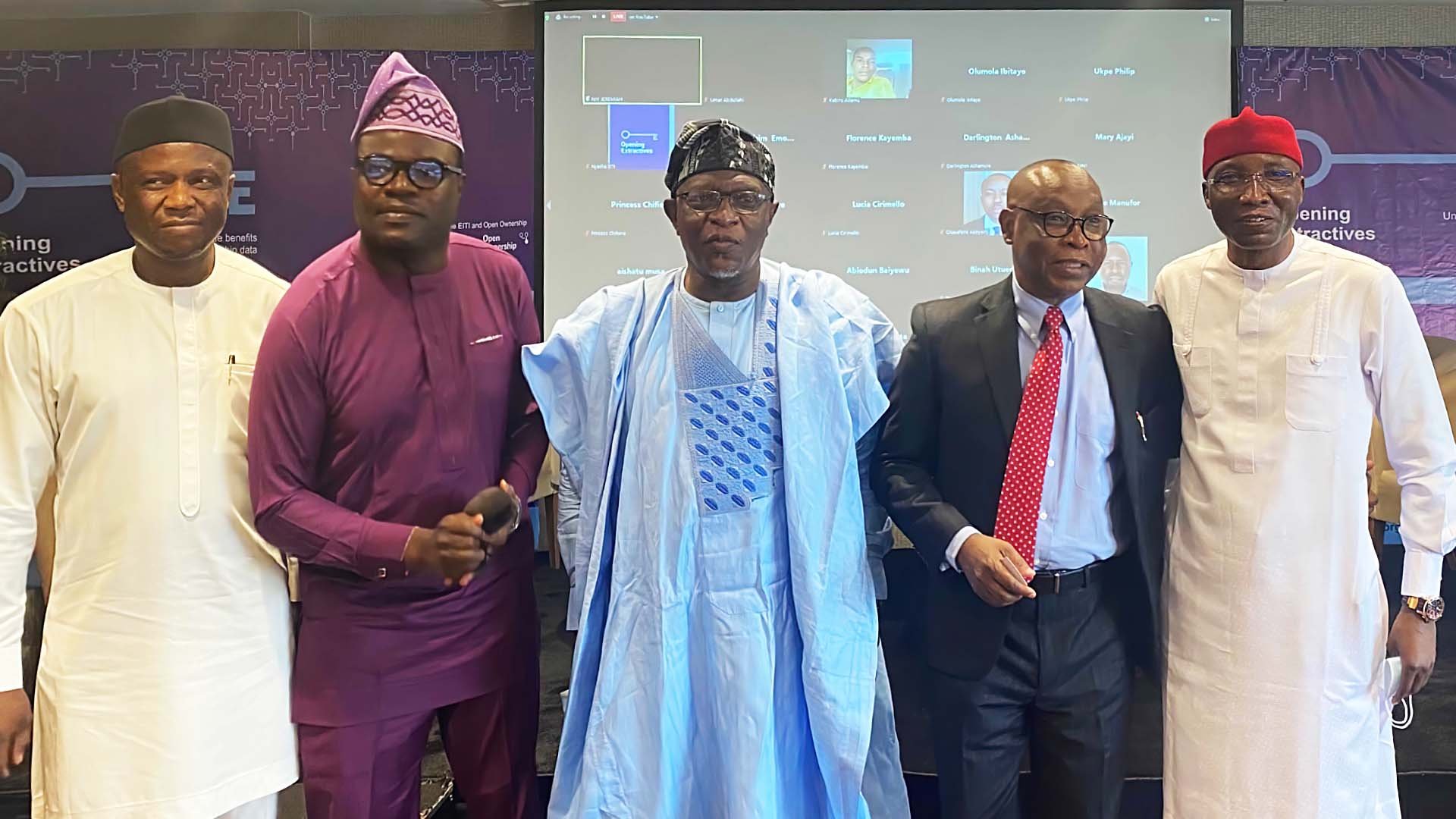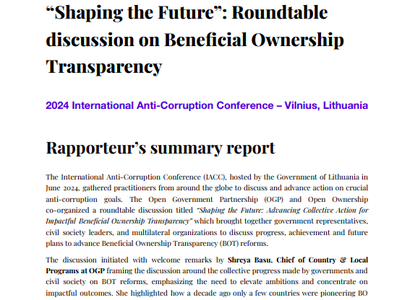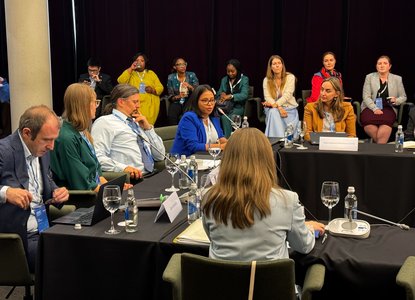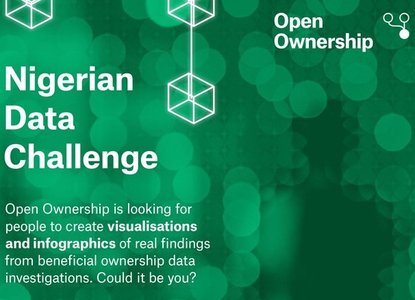Nigeria accelerates efforts in beneficial ownership transparency

Photo caption
The Chairman, Secretary, and members of NEITI MSG at the Opening Extractives launch. From left to right: Mr Peter Ebule representing civil society groups on the NEITI board; Prof Damilola Olawuyi, representing south west zone on the NEITI board; Mr Olusegun Adeyemi Adekunle, Chairman of NEITI National Stakeholders Working Group (NSWG); Dr Oji Ogbonnaya Oji, Executive Secretary, NEITI; Dr Iliya Gashimbali representing North East zone on the NEITI Board.
Nigeria officially launched the Opening Extractives programme on 9 November. Joining the programme shows Nigeria’s commitment to expand the frontiers of transparency and accountability by using beneficial ownership data to disclose the real owners of companies operating in the extractive sector.
Nigeria has made great strides in implementing beneficial ownership transparency since 2017. One of Nigeria’s recent accomplishments was the launch of the Persons of Significant Control register and, prior to this, developing Africa’s first digital beneficial ownership register for the extractives sector in 2019.
At the launch event, government representatives, civil society and companies affirmed that the programme will be part of ongoing transparency reforms in the extractive sector. In her keynote speech, Minister of Finance, Budget, and National Planning, Dr Zainab Ahmed, highlighted that Nigeria has now fully institutionalised beneficial ownership reporting and is evolving its systems to include sanctions for defaulters. Minister of State for Budget and National Planning, Mr. Clem Agba, Ahmed stated that access to quality beneficial ownership data strengthens accountability by improving governance of energy and mining revenues. He further reiterated that the collaboration with the programme would assist in curtailing corruption and illicit financial flows in Nigeria.
Dr Ogbonnaya Orji, Executive Secretary of Nigeria EITI (NEITI), explained that secrecy in corporate ownership of assets in the extractive industries remains a clear danger to the country’s economy. As part of NEITI’s objectives, the programme would support the government’s anti-corruption agenda and help eliminate corruption by promoting transparency and accountability in the extractive industry.
In a presentation on beneficial ownership transparency by the Nigerian Financial Intelligence Unit, Head of Mining, Oil and Maritime Crimes Analysis, Mr Abomaye Jeremiah Ushaka highlighted evidence that Nigeria has made positive efforts to ensure transparency in beneficial ownership. He acknowledged, however, that there is still room for improvement and that the implementation of Opening Extractives in Nigeria would be another leap in the right direction towards accessible quality beneficial ownership data.
Mr Alhaji Abdul Hakeem Mohammed, Director of Compliance and delegate of the Registrar General of the Corporate Affairs Commission, delivered a presentation on the status of beneficial ownership implementation, underscoring that companies must know the real owners and beneficiaries of the companies with whom they are dealing to ensure compliance with the law. NEITI Technical Director, Dr Dieter Ahmed Bassi, noted that beneficial ownership data can be used as a tool for building business confidence, attracting investments and good governance of natural resources.
Companies, private industry groups and key implementing agencies joined their efforts to those of NEITI through statements of support, including Seplat Petroleum Development Company Plc, Oil Producers Trade Section and Nigerian Upstream Petroleum Regulatory Commission, whose representatives affirmed that Opening Extractives will further foster accountability and integrity in the extractives industry.
As next steps, NEITI aims to work with key stakeholders in finalising the Opening Extractives engagement plan. It also aims to re-engage civil society and to progress beneficial ownership reforms in a way that integrates the efforts of government, companies and civil society stakeholders in the implementation journey.
For more information, contact Favour Ime, Regional Associate, Africa, on [email protected].


